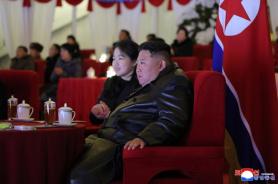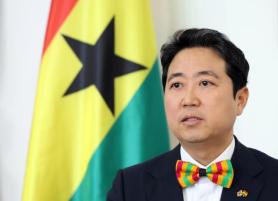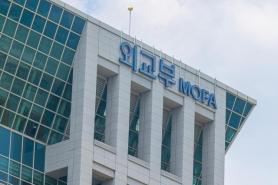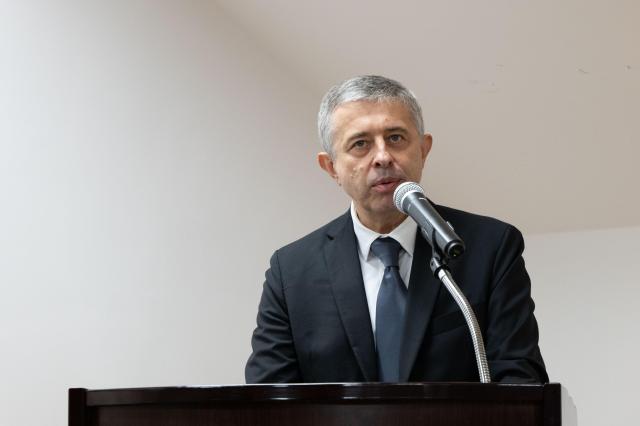
SEOUL, July 08 (AJU PRESS) - Russian Ambassador to the Republic of Korea, Georgy Zinoviev, highlighted the significance of understanding the history of Russo-Korean relations and how it influences the future during an event on Monday.
Ambassador Zinoviev addressed the past, present, and future of the relationship between Russia and Korea during the opening ceremony of an exhibition designed to commemorate the bilateral Treaty of Friendship and Commerce signed between Russia and Joseon in 1884. The event was held at the historic Appenzeller Noble Memorial Museum in central Seoul.
"Knowing the history helps to view the present objectively as well as take proper care of the future of our relations," Zinoviev said, adding, "It is especially important to remember how the Russian-Korean friendship started and developed."
While South Korea and Russia officially established diplomatic relations in 1990, just before the Soviet Union's collapse, the friendship between the two nations dates back to the 19th century. The 1884 treaty between the Russian Empire and the Joseon Dynasty provided a safe haven for Koreans during Japan's colonial rule (1910~1945).
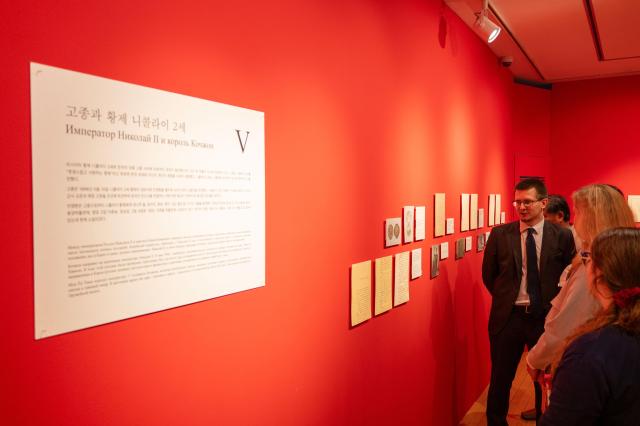
Zinoviev pointed out that Russia supported Joseon to promote autonomy and independence on the Korean Peninsula. However, these efforts were overshadowed and distorted by Japanese imperial forces, with such narratives persisting in South Korea's historical education until the 1990s. Fortunately, scholars have uncovered old documents that clarify Russia's efforts to defend Joseon.
The ambassador also drew parallels to the current strained relations following the Russia-Ukraine conflict that began in February 2022. Diplomatic ties have worsened since Seoul joined international sanctions against Moscow. Reports, primarily from Western media, suggest South Korea could provide weapons to Ukraine, painting Moscow as the aggressor.
"Today, as in earlier times, we witness attempts to discredit Russia," Zinoviev said, expressing hope that historical understanding will eventually restore the Russo-South Korea relationship. "I am convinced that just as it was with the events of the late 19th and early 20th centuries, history will set things right."
The exhibition features about one hundred art pieces, documents, and photographs showcasing diplomatic relations between South Korea and Russia, mainly from the late Joseon Dynasty era. Among the displays are reproductions of paintings by the renowned Joseon artist Jang Seung-eop (1843~1897), which were presented by King Gojong to Emperor Nicholas II of Russia for his coronation in 1896.
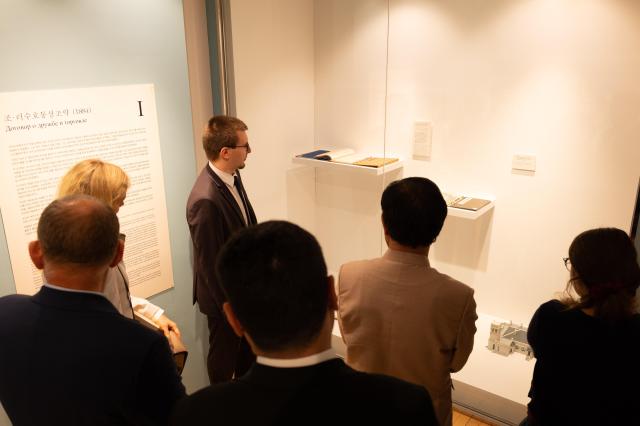
"The exhibition we are opening today displays historical materials and archive photos related to Russo-South Korean ties from the late 19th to early 20th centuries," said Zinoviev at the ceremony.
Kim Sun-myoung, director of the Pushkin House Cultural Center, expressed hope that the exhibition would foster better relations between the two countries. "I especially hope young students pay attention to the exhibition so they can learn more about the historical background of the relationship between the two countries," Kim said, underscoring the importance of cultural exchange.
Copyright ⓒ Aju Press All rights reserved.


